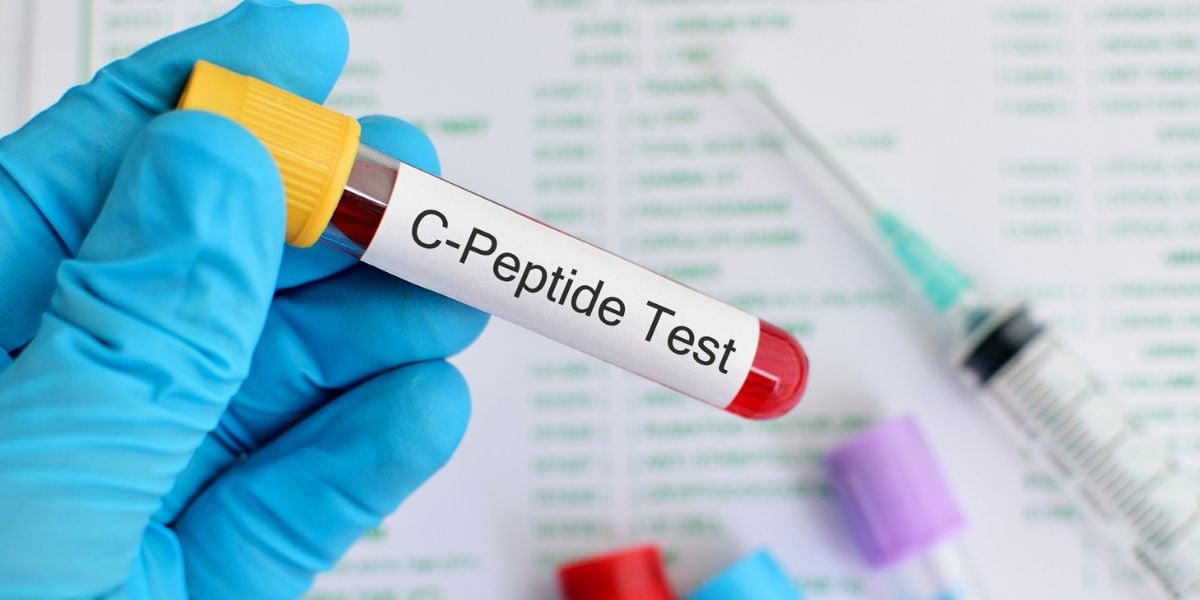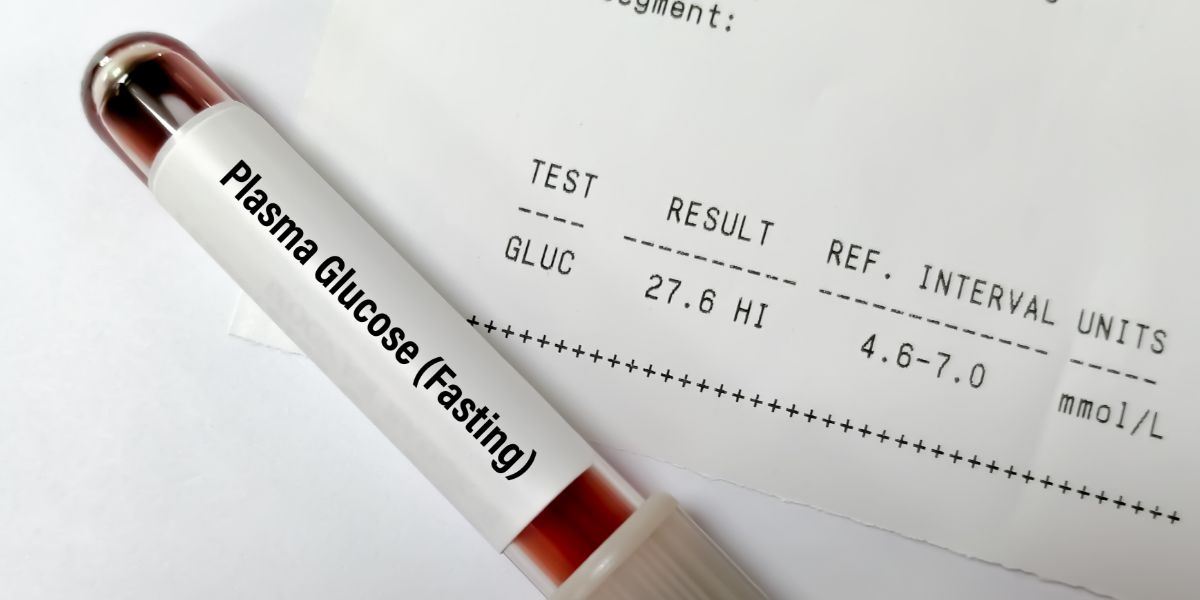A C-peptide test is a blood test which is carried out to find out how much insulin your body is producing. This may be useful for determining whether you have type 1 or type 2 diabetes or whether you have insulin resistance.
What is C-peptide?
C-peptide is released at the same time as insulin.
For each molecule of insulin produced there is a molecule of c-peptide. C-peptide does not itself influence blood sugar.
C-peptide is a useful marker of insulin production because c-peptide tends to remain in the blood longer than insulin.
Why is a c-peptide test done?
A c-peptide test can be performed for any of the following reasons:
- To distinguish whether you may have type 1 or type 2 diabetes
- To investigate whether you have insulin resistance
- To ascertain causes of hypoglycemia (low blood glucose levels)
- To monitor insulin production after the removal of a tumour of the pancreas (insulinoma)
How is the test performed?
To measure level of c-peptide a fasting blood test is taken.
You will be asked not to eat or drink (certain fluids) for 8 to 12 hours before the test.
If you take blood glucose lowering medication you will likely be asked to stop taking these in the run up to the test.
For the blood test itself, a sample of blood will be taken from your arm and it shouldn’t take much more than a minute.
Levels of c-peptide will be measured as well as the blood glucose level
Stimulated c-peptide test
If the test is to diagnose either type 1 or type 2 diabetes, an injection of glucagon may be given into the arm between two blood samples to attempt to stimulate insulin production
C-peptide test results
C-peptide test results are classed within 3 ranges/values.
Normal range
- The normal range for a c-peptide test is: 0.51 to 2.72 nanograms per millilitre (ng/mL)
- This may also be expressed as: 0.17-0.90 nanomoles per litre (nmol/L)
The following information serves only as a guide. Your doctor should be able to advise you as to what the test results may indicate.
Low test result values
Low levels of c-peptide and high blood glucose levels could be an indicator of type 1 diabetes.
Low levels of both c-peptide and blood glucose could indicate liver disease, a severe infection or Addison’s disease.
High test result values
High levels of c-peptide with a low level of blood glucose could be an indication of insulin resistance, either type 2 diabetes or Cushing’s syndrome.
High levels of c-peptide but low blood glucose levels may be a result of insulinoma (a tumour of the pancreas) unless glucose lowering medication has influenced the result.





